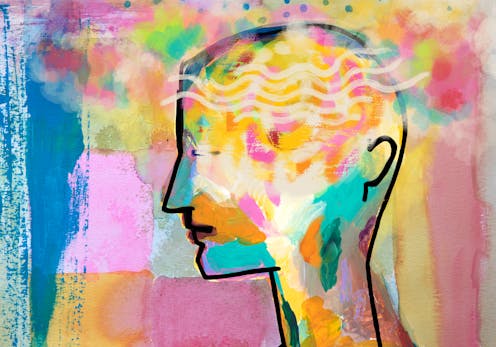Learning disabilities are neurological disorders that affect the brain’s ability to process and understand information. These disabilities can impact various areas of learning, such as reading, writing, math, and comprehension. Students with learning disabilities often face significant challenges in the classroom and may require additional support and accommodations to succeed academically. It is crucial for educators, parents, and society as a whole to understand and address learning disabilities to ensure that all students have equal opportunities for success.
Understanding the Different Types of Learning Disabilities
Learning disabilities are a diverse group of disorders that can manifest in different ways. The most common types of learning disabilities include dyslexia, dyscalculia, dysgraphia, and auditory processing disorder. Dyslexia is a reading disorder that affects a person’s ability to recognize and comprehend written words. Dyscalculia is a math disorder that makes it difficult for individuals to understand and work with numbers. Dysgraphia is a writing disorder that affects a person’s ability to write legibly and coherently. Auditory processing disorder is a condition that affects how the brain processes auditory information.
These learning disabilities can have a significant impact on students’ academic performance and overall well-being. Students with learning disabilities may struggle with tasks that their peers find easy, leading to frustration, low self-esteem, and a lack of motivation. They may also experience difficulties with social interactions and may be at higher risk for mental health issues such as anxiety and depression. Understanding the specific challenges faced by students with learning disabilities is essential for providing appropriate support and accommodations.
Identifying the Signs of Learning Disabilities in Students
Early identification of learning disabilities is crucial for providing timely interventions and support. Some common signs of learning disabilities include difficulty with reading, writing, or math skills; poor memory; trouble following directions; difficulty staying focused; and problems with organization and time management. It is important for parents and educators to be aware of these signs and to seek professional evaluations if they suspect a learning disability.
Early intervention can make a significant difference in a student’s academic success and overall well-being. With the right support and accommodations, students with learning disabilities can thrive in the classroom and reach their full potential. It is important for parents and educators to work together to identify and address learning disabilities as early as possible.
Navigating the Educational System with a Learning Disability
Navigating the educational system can be challenging for students with learning disabilities. The traditional classroom setting may not always meet their unique needs, and they may face barriers to accessing appropriate accommodations and support services. It is important for parents to understand their rights and advocate for their child’s needs within the educational system.
One of the key challenges for students with learning disabilities is accessing appropriate accommodations. These accommodations may include extra time on tests, preferential seating, access to assistive technology, and modified assignments. However, obtaining these accommodations can sometimes be a complex process that requires documentation from professionals and ongoing communication with school staff.
To navigate the educational system effectively, parents should familiarize themselves with their rights under the Individuals with Disabilities Education Act (IDEA) and Section 504 of the Rehabilitation Act. These laws protect the rights of students with disabilities and ensure that they receive a free and appropriate public education. Parents should also establish open lines of communication with their child’s teachers and school administrators to ensure that their child’s needs are being met.
Accommodations and Support Services for Students with Learning Disabilities
There are a variety of accommodations and support services available to students with learning disabilities. These services are designed to help students overcome their challenges and succeed academically. Some examples of accommodations include extended time on tests, modified assignments, preferential seating, access to assistive technology, and the use of visual aids.
In addition to accommodations, students with learning disabilities may also benefit from support services such as specialized instruction, tutoring, and counseling. Specialized instruction can help students develop strategies and skills to overcome their specific challenges. Tutoring can provide additional academic support in areas where students are struggling. Counseling can help students address any social or emotional challenges they may be facing.
It is important for parents and educators to work together to determine the most appropriate accommodations and support services for each individual student. These services should be tailored to the student’s specific needs and should be regularly reviewed and adjusted as necessary.
Strategies for Teachers to Support Students with Learning Disabilities
Teachers play a crucial role in supporting students with learning disabilities in the classroom. By implementing effective strategies and providing individualized instruction, teachers can help these students succeed academically and build their confidence.
One important strategy is to provide clear and explicit instructions. Students with learning disabilities may struggle with processing information, so it is important for teachers to break down tasks into smaller steps and provide clear directions. Teachers should also provide visual aids and other visual supports to help students understand and remember information.
Another important strategy is to provide frequent opportunities for practice and review. Students with learning disabilities often benefit from additional practice and reinforcement of concepts. Teachers can provide extra worksheets, online resources, or hands-on activities to help students practice and apply what they have learned.
Differentiating instruction is also crucial for supporting students with learning disabilities. This means tailoring instruction to meet the individual needs of each student. Teachers can provide additional support or modified assignments for students who need it, while still challenging those who are capable of more advanced work.
Building a Strong Relationship with Your Child’s School
Building a strong relationship with your child’s school is essential for ensuring that their needs are being met. Effective communication and collaboration between parents and school staff can lead to better outcomes for students with learning disabilities.
One way to build a strong relationship with your child’s school is to establish open lines of communication. Regularly communicate with your child’s teachers and administrators to stay informed about their progress and any challenges they may be facing. Be proactive in reaching out to the school if you have any concerns or questions.
It is also important to attend parent-teacher conferences and other school events. These events provide an opportunity to meet with your child’s teachers and discuss their progress. They also allow you to build relationships with other parents and become more involved in the school community.
Another way to build a strong relationship with your child’s school is to volunteer or participate in school activities. By getting involved, you can show your support for the school and demonstrate your commitment to your child’s education.
Advocating for Your Child’s Educational Needs
Advocating for your child’s educational needs is crucial for ensuring that they receive the support and accommodations they need to succeed. As a parent, you are your child’s best advocate and have a unique understanding of their strengths, challenges, and needs.
One important aspect of advocacy is being knowledgeable about your child’s rights under the law. Familiarize yourself with the Individuals with Disabilities Education Act (IDEA) and Section 504 of the Rehabilitation Act, which protect the rights of students with disabilities. Understand the process for obtaining accommodations and support services, and be prepared to advocate for these services if necessary.
Another important aspect of advocacy is effective communication with school staff. Clearly communicate your concerns, questions, and expectations to your child’s teachers and administrators. Be prepared to provide documentation or other evidence to support your requests for accommodations or services.
It is also important to be persistent in advocating for your child’s needs. If you encounter resistance or obstacles, don’t give up. Continue to communicate with school staff, seek additional support or resources if necessary, and consider seeking legal advice if you believe your child’s rights are being violated.
The Importance of Self-Advocacy for Students with Learning Disabilities
Self-advocacy is a crucial skill for students with learning disabilities to develop. By advocating for themselves, students can take an active role in their education and ensure that their needs are being met.
One important aspect of self-advocacy is understanding one’s own strengths, challenges, and needs. Students with learning disabilities should be encouraged to reflect on their own learning styles and preferences, and to identify the strategies and accommodations that work best for them.
Another important aspect of self-advocacy is effectively communicating one’s needs to teachers and other school staff. Students should be encouraged to speak up when they need additional support or accommodations, and to clearly communicate their concerns or questions.
Self-advocacy also involves taking responsibility for one’s own learning. Students should be encouraged to set goals, manage their time effectively, and seek out resources or support when needed. By taking an active role in their education, students can develop the skills and confidence they need to succeed.
Addressing Social and Emotional Challenges for Students with Learning Disabilities
Students with learning disabilities often face social and emotional challenges in addition to their academic struggles. These challenges can include feelings of frustration, low self-esteem, isolation, and anxiety. It is important for parents and educators to address these challenges and provide appropriate support.
One way to address social and emotional challenges is by fostering a supportive and inclusive classroom environment. Teachers can promote empathy, understanding, and acceptance among students by teaching them about learning disabilities and encouraging them to be supportive of their peers.
Counseling or therapy can also be beneficial for students with learning disabilities who are experiencing social or emotional difficulties. These services can provide a safe space for students to express their feelings, develop coping strategies, and build resilience.
It is also important for parents and educators to provide positive reinforcement and celebrate the achievements of students with learning disabilities. Recognizing their efforts and progress can help boost their self-esteem and motivation.
Preparing for the Transition to College or Career with a Learning Disability
The transition to college or career can be particularly challenging for students with learning disabilities. The increased independence and academic demands can be overwhelming. It is important for students, parents, and educators to prepare for this transition and ensure that students have the necessary support and accommodations.
One important step in preparing for the transition is to develop a transition plan. This plan should outline the student’s goals, strengths, challenges, and support needs. It should also identify the resources and accommodations that will be available in college or the workplace.
It is also important for students to develop self-advocacy skills before transitioning to college or career. Students should be encouraged to communicate their needs, seek out resources, and take responsibility for their own learning.
Parents and educators can also provide guidance and support during this transition period. They can help students research colleges or career options that are supportive of individuals with learning disabilities. They can also help students develop strategies for managing their time, staying organized, and seeking out academic support if needed.
Resources and Support for Families and Students with Learning Disabilities
There are many resources and support services available for families and students with learning disabilities. These resources can provide information, guidance, and support throughout the educational journey.
Some examples of organizations that provide support for families and students with learning disabilities include the Learning Disabilities Association of America (LDA), the National Center for Learning Disabilities (NCLD), and Understood.org. These organizations offer a wealth of information on learning disabilities, advocacy, accommodations, and other related topics.
In addition to these organizations, there are also many online resources available for families and students with learning disabilities. These resources include websites, blogs, forums, and social media groups where individuals can connect with others who have similar experiences.
It is important for families and students to take advantage of these resources and support services to ensure that they have the information and support they need to succeed.
Learning disabilities can have a significant impact on students’ academic performance and overall well-being. It is important for educators, parents, and society as a whole to understand and address these disabilities to ensure that all students have equal opportunities for success. By identifying the signs of learning disabilities, navigating the educational system, advocating for students’ needs, and providing appropriate accommodations and support services, we can help students with learning disabilities thrive in the classroom and beyond.
Find out how Torongo Therapyplus can help you with your needs. Get in touch with us at smile@torongo.life, or call us on 02 8809 9965.































